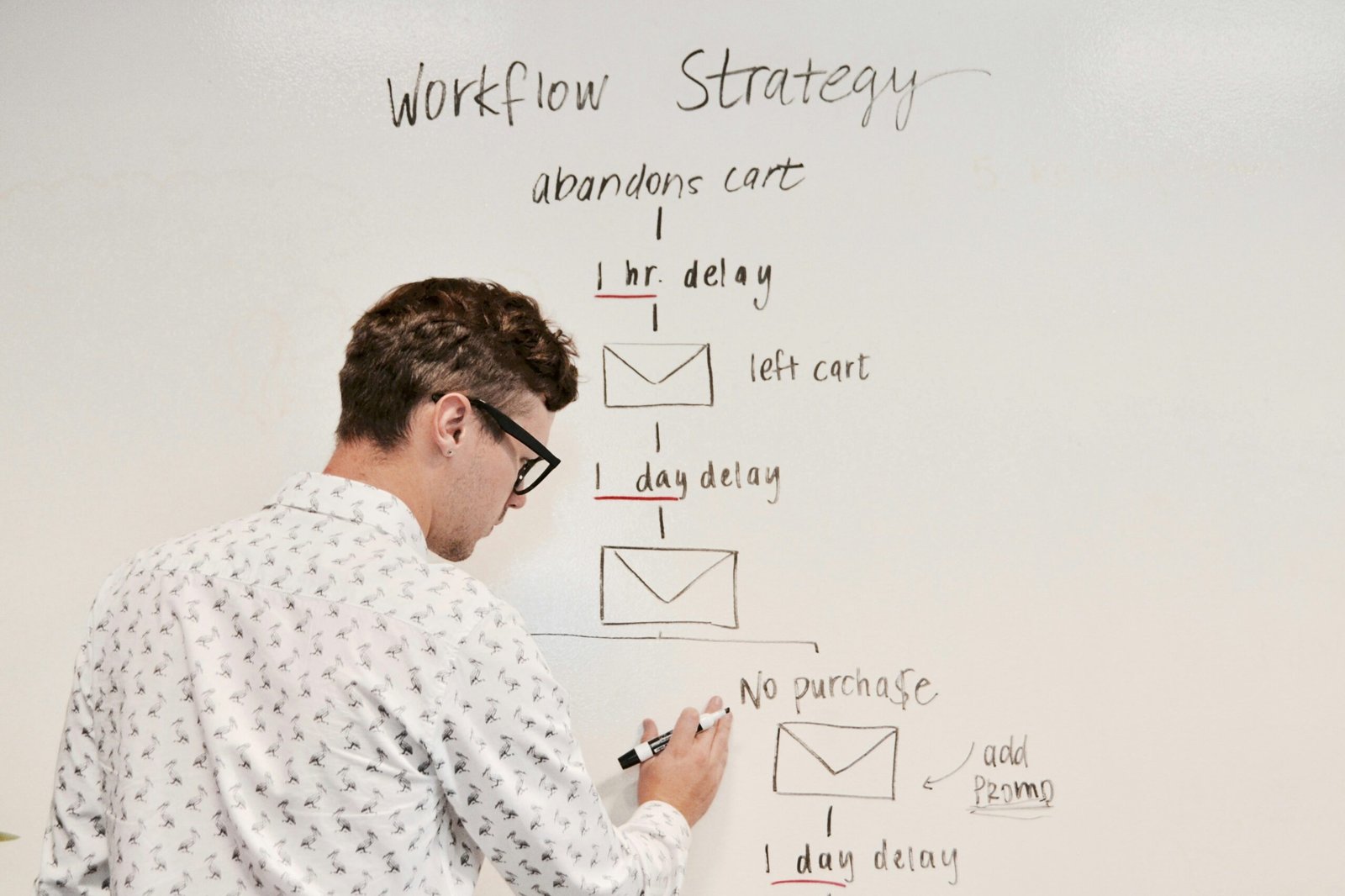7 Email Marketing Techniques That Double Sales for B2B E-commerce Businesses
Understanding the Importance of Email Marketing in B2B E-commerce
Email marketing has emerged as a cornerstone strategy for B2B e-commerce businesses, driving engagement and revenue in this increasingly competitive landscape. Its significance lies in several advantages that set it apart from traditional marketing channels. Primarily, email marketing is highly cost-effective, requiring fewer resources compared to print or pay-per-click (PPC) advertising. This affordability allows businesses to reach a vast audience without incurring substantial costs, making it particularly beneficial for small to medium-sized enterprises looking to maximize their marketing budgets.
Another key advantage of email marketing in B2B contexts is the ability to facilitate direct communication with potential and existing clients. This direct line not only fosters relationship building but also ensures that promotional messages reach the inboxes of targeted recipients, thus enhancing the likelihood of customer engagement. Moreover, personalization plays a vital role in email effectiveness. Tailoring content based on recipient preferences and behaviors can significantly increase open and click-through rates. Personalization strategies, such as dynamic content and segmented lists, allow businesses to deliver relevant messages that resonate with their audience.
Statistics further reinforce the value of email marketing, showcasing impressive return on investment (ROI) figures. According to industry research, email marketing can yield an average ROI of $42 for every dollar spent, which underscores its effectiveness compared to other digital marketing avenues. Furthermore, effective email campaigns are instrumental in nurturing leads throughout the sales funnel, providing pertinent information at various touchpoints, which helps move prospects closer to conversion.
In conclusion, email marketing is essential for B2B e-commerce businesses looking to enhance their marketing efforts. Its cost-effectiveness, direct communication capabilities, and personalized approach contribute significantly to customer retention and the overall success of marketing strategies.
Segmenting Your Email List for Maximum Impact
In the realm of B2B e-commerce, effective email marketing hinges significantly on the practice of segmenting your email list. By categorizing your audience based on factors such as customer behavior, purchase history, and demographics, businesses can tailor their messaging to resonate more deeply with distinct segments. This approach not only enhances engagement rates but also drives higher conversion rates, ultimately leading to increased sales.
One of the foundational strategies in segmentation is behavior-based categorization. For instance, tracking how frequently customers interact with your emails—such as opens and clicks—allows you to identify highly engaged users versus those who may have lapsed. By creating targeted campaigns that re-engage the less active subscribers or reward loyal customers, businesses can personalize their approach, significantly increasing the likelihood of conversions.
Another effective segmentation strategy is to assess purchase history. This involves grouping customers based on their past transactions, enabling businesses to send tailored recommendations or promotions relevant to each individual’s buying patterns. For instance, a customer who frequently purchases software solutions may appreciate receiving updates on enhanced products or exclusive discounts on related services, promoting repeat purchases.
Demographic-based segmentation is also paramount. Factors such as industry, company size, or geographic location can vastly influence purchasing decisions. Customizing your email content to cater to these demographic segments ensures that your messages are not merely promotional, but strategically aligned with the unique needs of various audience groups.
Successful examples of segmentation tactics include personalized subject lines and content, which have been known to increase open rates by up to 26%. Furthermore, deploying A/B testing on different segments can help refine your approach. Implementing such segmentation strategies is crucial for optimizing your email marketing efforts, thereby unlocking the potential for significantly boosting sales in the B2B e-commerce landscape.
Crafting Compelling Subject Lines and Content That Converts
Creating effective subject lines is crucial in the realm of email marketing, especially for B2B e-commerce businesses aiming to enhance their sales. A captivating subject line not only piques the recipient’s interest but also increases the likelihood of the email being opened. To achieve this, the subject line must be clear, concise, and relevant. Using action-oriented language can create a sense of urgency, which encourages prospects to act promptly. Additionally, incorporating personalization, such as including the recipient’s name or referencing their company, can significantly improve open rates.
Once the email has been opened, the subsequent content should be equally compelling. One effective strategy is to utilize storytelling techniques. By weaving narratives that resonate with the target audience, businesses can foster an emotional connection that boosts engagement. For instance, sharing customer success stories or case studies can illustrate how a product or service has provided tangible benefits, effectively demonstrating its value.
Moreover, utilizing strong calls to action (CTAs) is essential in guiding the reader toward the next step. A well-crafted CTA should be prominently positioned and clearly communicate what the recipient should do next, be it visiting a webpage, signing up for a webinar, or making a purchase. Effective CTAs, combined with persuasive content, can lead to higher conversion rates.
Lastly, employing A/B testing on various elements such as subject lines, content format, and CTA placements can yield invaluable insights. By analyzing the performance of different versions, businesses can refine their messaging over time, thereby improving engagement and conversion rates. Testing and iteration create opportunities for learning what truly resonates with the audience, ultimately driving sales and enhancing the effectiveness of email marketing campaigns.
Automating Your Email Campaigns for Efficiency
Email marketing automation has become an essential strategy for B2B e-commerce businesses, allowing them to engage with prospects and customers effectively while conserving valuable time. Automating email campaigns enables businesses to deliver targeted messages without the constant manual effort that traditional email marketing requires. One of the primary benefits of this approach is the ability to maintain a personalized communication style, which is crucial for establishing meaningful connections with clients.
Various types of automated emails can significantly enhance user engagement. A welcome series, for instance, can be initiated when a new subscriber signs up for your newsletter, providing them with relevant content and introducing them to your brand. Nurture campaigns can be implemented to develop relationships over time, guiding leads through the sales funnel with tailored content that addresses their specific needs and pain points. Following up after purchases is another automated practice that can foster customer loyalty by thanking clients for their business and suggesting complementary products or services.
In addition to these practices, automation tools enable marketers to create triggered emails, which are sent based on specific actions taken by the user, such as abandoning a shopping cart or clicking on a product link. This timely communication not only increases the likelihood of conversions but also enhances the overall user experience by providing relevant information when it is needed most. As B2B e-commerce businesses seek to optimize their marketing strategies, leveraging these automation techniques will prove invaluable for driving efficiency and improving sales outcomes.
By integrating automation into your email marketing strategy, you can streamline processes, deliver consistent messaging, and ultimately cultivate stronger relationships with your audience. This approach not only results in time savings but also positions your business for success in a competitive landscape.







